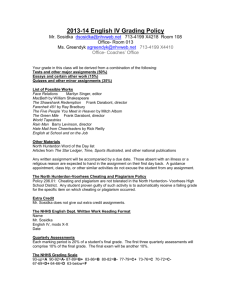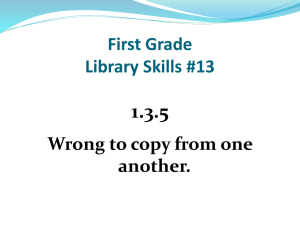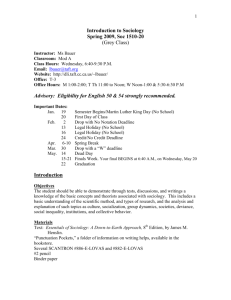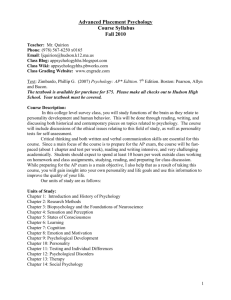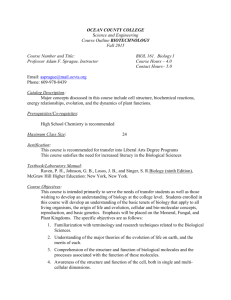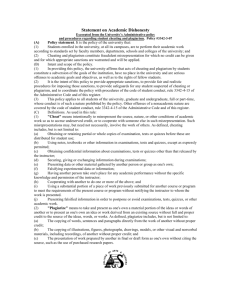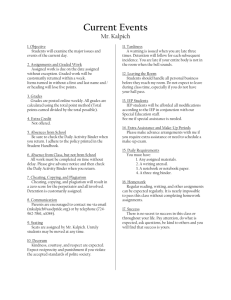Cheating policy
advertisement
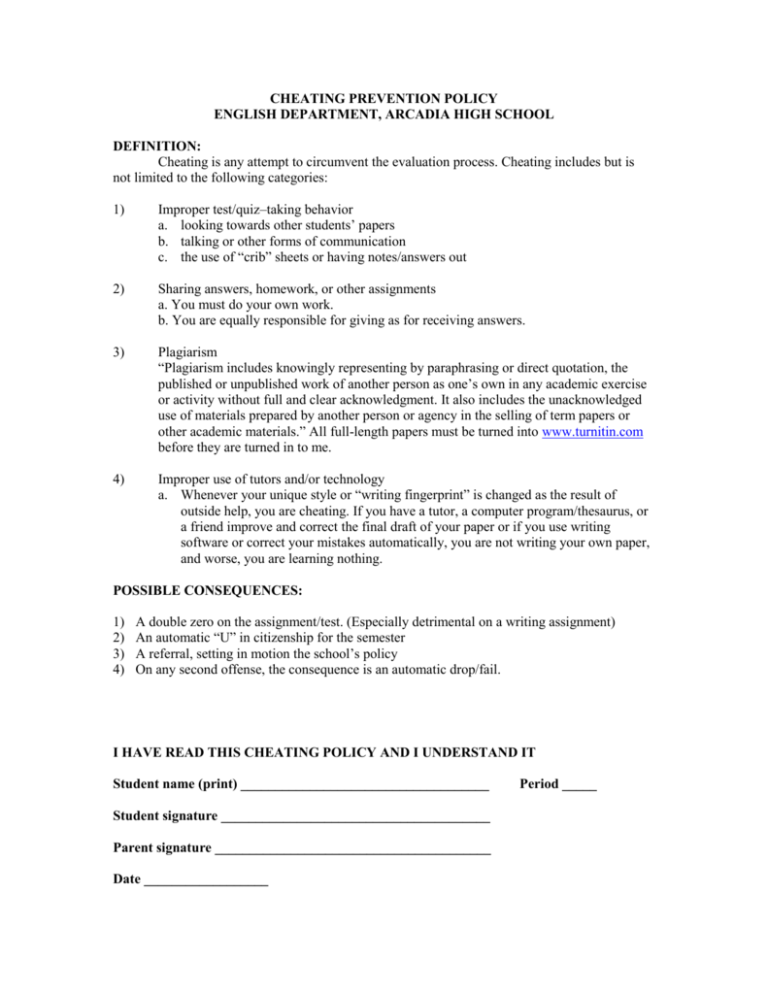
CHEATING PREVENTION POLICY ENGLISH DEPARTMENT, ARCADIA HIGH SCHOOL DEFINITION: Cheating is any attempt to circumvent the evaluation process. Cheating includes but is not limited to the following categories: 1) Improper test/quiz–taking behavior a. looking towards other students’ papers b. talking or other forms of communication c. the use of “crib” sheets or having notes/answers out 2) Sharing answers, homework, or other assignments a. You must do your own work. b. You are equally responsible for giving as for receiving answers. 3) Plagiarism “Plagiarism includes knowingly representing by paraphrasing or direct quotation, the published or unpublished work of another person as one’s own in any academic exercise or activity without full and clear acknowledgment. It also includes the unacknowledged use of materials prepared by another person or agency in the selling of term papers or other academic materials.” All full-length papers must be turned into www.turnitin.com before they are turned in to me. 4) Improper use of tutors and/or technology a. Whenever your unique style or “writing fingerprint” is changed as the result of outside help, you are cheating. If you have a tutor, a computer program/thesaurus, or a friend improve and correct the final draft of your paper or if you use writing software or correct your mistakes automatically, you are not writing your own paper, and worse, you are learning nothing. POSSIBLE CONSEQUENCES: 1) 2) 3) 4) A double zero on the assignment/test. (Especially detrimental on a writing assignment) An automatic “U” in citizenship for the semester A referral, setting in motion the school’s policy On any second offense, the consequence is an automatic drop/fail. I HAVE READ THIS CHEATING POLICY AND I UNDERSTAND IT Student name (print) ____________________________________ Student signature _______________________________________ Parent signature ________________________________________ Date __________________ Period _____ TYPES OF CHEATING CHEATING ON A TEST Program calculator Program cell phone/MP3 player-Ipod – Upload notes to Ipod Switch tests Pass notes Signals during test Speaking different language during test Tilting pencils in different directions as a sign Morse code Lift up paper Get up to sharpen pencil, throw away trash, go to the bathroom Take a test of someone who is finished Take advantage of round tables or close seats Take advantage of answers on walls (posters) Teacher absence/indifference Talking, text messaging between classes Finals schedule allows for test answers to circulate TAs get tests, change grades Students who are absent on test find out answers for make-up test Crib sheets Write on desks Write on skin – hands, arms, legs (skirt, shorts) Write on erasers, sharing erasers Write on hat, shoe, inside sweatshirt pocket Answers already on paper they take out Write on things that are on the desk – candy wrappers, water bottles, gum, tissue, mints, pencil box, inside binder cover, rubber band, backpack open on floor Inside calculator covers Inside clear pens, pencils Inside desks with drawer HOMEWORK Copy homework before class Typed assignments can be emailed to each other Using instant messaging, text messaging, online forums, or email to share answers Semester classes (econ/gov) have same homework both semesters Teachers who “check” homework see the same assignment Divide homework questions among friends Use older siblings’ or graduates’ assignments OTHER Forging notes Using homework/projects from other schools Tutors or parents doing assignments Buying teacher editions online Tutors have tests Students take advantage of peer/self grading Buying essays online Going to sparknotes (etc.) instead of reading books


